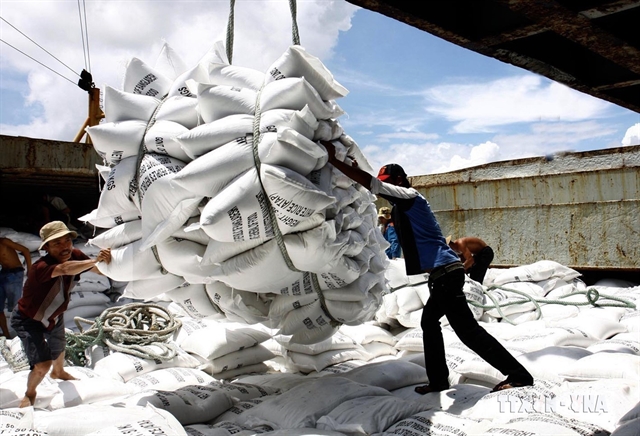.jpg) Economy
Economy
.jpg)
 |
| Rice is loaded in HCM City before being exported to Malaysia. — VNA/VNS Photo Đình Huệ |
KUALA LUMPUR — The Vietnamese and Malaysian economies are of a similar size and complement each other, Trade Counselor Lê Phú Cường at the Vietnamese Embassy in Malaysia said.
In an interview with a Vietnam News Agency correspondent based in Kuala Lumpur on the occasion of the 50th anniversary of the countries’ diplomatic relations (March 30, 1973 - March 30, 2023), Cường said Việt Nam boasts advantages in terms of labour and development potential, while Malaysia's are in capital and deep integration into the world economy.
Malaysia’s market is not that large but is diverse. Its consumers’ characteristics are generally similar to Việt Nam, he said, adding that its Halal requirements are the biggest difference to note.
According to the official, the two countries’ trade and investment relations have developed for a long time since Việt Nam integrated into ASEAN and became a production location for many manufacturers, including those from Malaysia.
However, in recent years, the flow of Malaysian investment into Việt Nam has shown signs of slowing down, increasing just US$300 million from $12.6 billion in 2019 to $12.9 billion last year.
In 2022, the country ranked 10th among Việt Nam’s biggest foreign investors, down two places from 2019. Meanwhile, Malaysia has maintained a large trade surplus with Việt Nam for many years, making it difficult to balance the sides’ current accounts.
Cường recommended the two countries increase high-level visits and promote and support investment cooperation activities between their businesses.
He said trade promotion should be given priority to assist Vietnamese and Malaysian firms in taking advantage of opportunities brought about by free trade agreements.
He added that it is also necessary to encourage Vietnamese businesses to join trade fairs and promotion activities in Malaysia, seeking business chances and distribution partners, especially for agricultural products and food.
During his visit to Việt Nam in March 2022, then Prime Minister of Malaysia Ismail Sabri Yakoob mentioned the prospect of cooperation between the two countries in the Halal field, which, according to Cường, implies the production and export of products meeting Halal standards.
He said Malaysia now wants to promote the universalisation of the Halal standard for Vietnamese food products exported to the country and cooperate with Việt Nam to export those products to other Muslim markets.
However, many Vietnamese manufacturers and exporters still consider the standard a barrier because it increases production and business costs.
According to the trade counsellor, Việt Nam now has several establishments conducting inspections and issuing Halal certificates for businesses and products.
He said that in future, the Vietnamese Trade Office in Malaysia plans to organise more activities to attract domestic enterprises to the Malaysian market and increase the number of food firms meeting Halal standards, which will help boost the export of Halal-compliant food products to not only Malaysia but also larger markets such as Indonesia and those in the Middle East and North Africa.
Concerning Vietnamese expatriates in Malaysia, the counsellor said the community is quite large and participates enthusiastically in the host nation’s economic activities, contributing to its growth and the development of the Việt Nam-Malaysia people-to-people and economy-trade-investment diplomatic relations.
However, the majority of Vietnamese-run businesses in Malaysia are small in size with few linkages. — VNS
.jpg)



